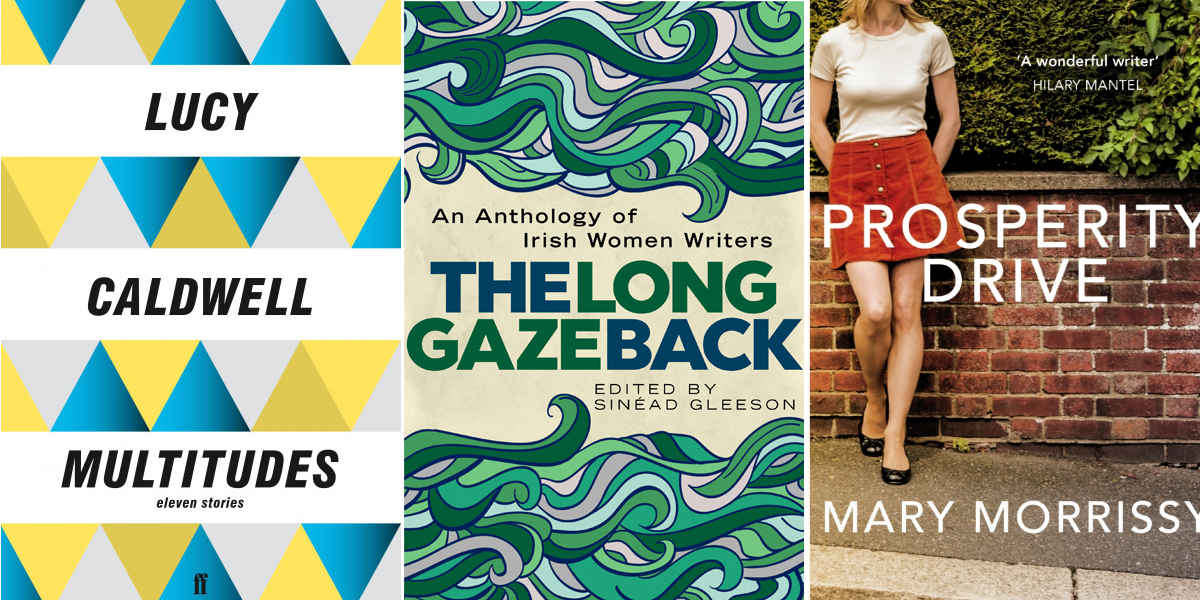Criticism, fiction and other writing

I’ve been thinking more than usual about short stories recently, in part because The Long Gaze Back, an anthology of stories by Irish women writers edited by Sinéad Gleeson, is the current Dublin One City One Book choice, and because Lucy Caldwell, one of the writers anthologized in that volume, is editing Being Various, an anthology of new Irish short stories for Faber.
Then, in April. Gleeson tweeted an aperçu from Mavis Gallant that made me start to pay a bit more attention.
Last night's hugely paraphrased Mavis Gallant quote on reading short stories:
— Sinéad Gleeson (is offline) (@sineadgleeson) April 19, 2018
“Stories are not chapters of novels. They should not be read one after another, as if they were meant to follow along. Read one. Shut the book. Read something else. Come back later. Stories can wait.”
This comes from Gallant’s 1950 Collected Stories but it was new to me. Gallant is broadly right, of course, and her insight got me wondering if the inflexible requirements of book publishing haven’t meant, until very recently, that the short story has been hampered by the need to anthologize or collect it; to bind it into volumes the approximate shape and size of a novel. Has the short story been unwillingly forced to adopt an unflattering disguise, to its own detriment?
If it has, the web, and the hugely expanded possibilities offered by sites like Medium may mean that the form now has the means to free itself from the chapter-in-a-book model. In the past, the reader who wished to read short stories but wasn’t willing to buy a volume of them had very little choice but to subscribe to literary magazines. Now, there are many more options.
The immediate prompt for this post was a piece by JR Ramakrishnan in which she suggested that short stories might hold an attraction for the “attention-challenged” lover of literature who wishes to binge-read.
In a sense, of course, in its particular appeal to the reader who is short of time, the short form is deceptive. A short story may be undemanding in terms of how long it takes to read, at least for the first time, but it is demanding in other ways. It will often insist on attention, reflection, even (especially) being reread. That, indeed, is partly Gallant’s point: the story needs to be given the opportunity to do its work.
In a recent post, I was sceptical of the idea that Kristen Roupenian’s “Cat Person” had slipped past the defences of many readers by appearing to be something other than it was: a personal essay or memoir as opposed to a piece of short fiction. But, if readers are better able to distinguish fiction from memoir than some observers are willing to admit, it may still be the case that the deceptively undemanding single short story is particularly well placed to steal up on the unwary reader. Not by disguising itself as nonfiction but rather by presenting itself as something light and easily digestible. Could it be that the success of “Cat Person” indicates that there’s more of an appetite for short stories — individual, uncollected short stories — than anybody (and particularly who works in traditional publishing) had thought?
There’s certainly no problem with supply. Fiction isn’t nearly as visible on Medium as several other kinds of writing but you shouldn’t be in any doubt that it’s there. There’s a body of writers on Medium who consistently produce remarkable work.
The original version of this post linked to three individual stories by Felicia C Sullivan, one of the most impressive writers of short fiction on Medium. Unfortunately, when I checked just now (03-Apr-2021) two of the links were broken, so I’m replacing them with a link to her fiction archive. Any of these stories will be worth a read. I hope you enjoy them.